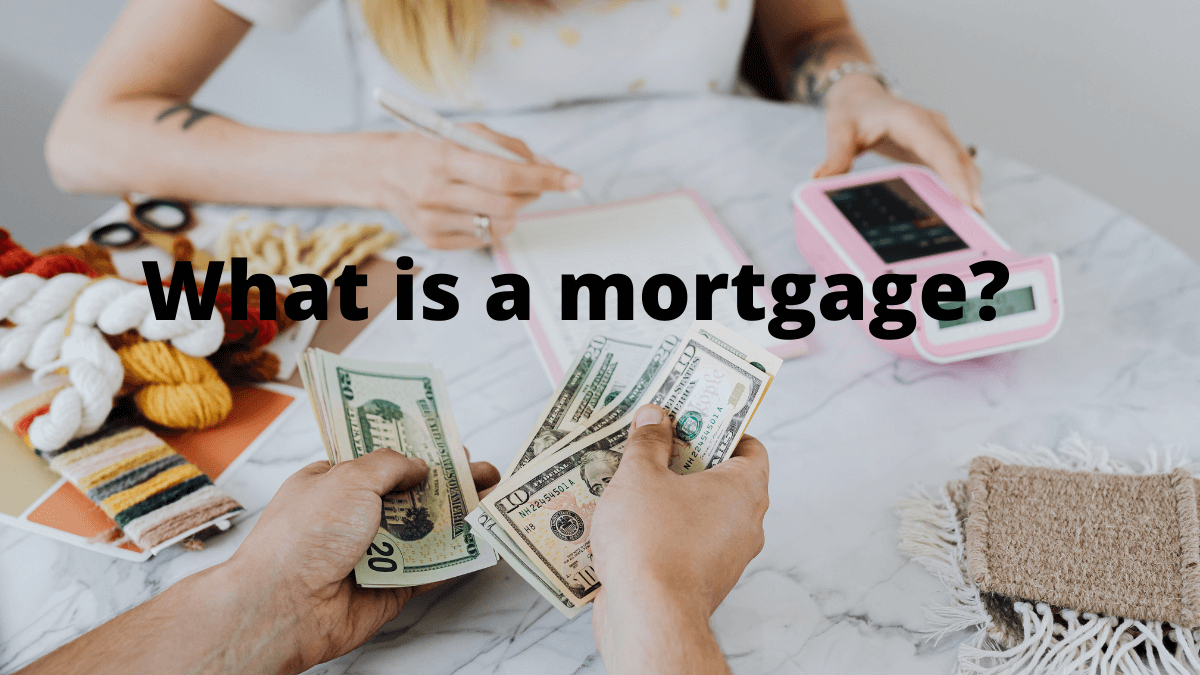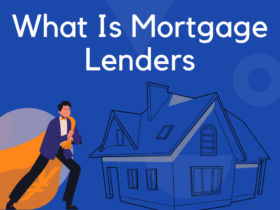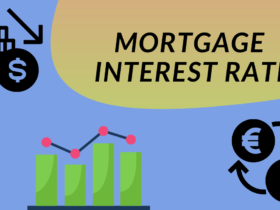What is a mortgage?
A mortgage loan to buy a bank or other financial institution that the borrower is in a house. Bail for the mortgage of the house, which means that if the borrower’s monthly payments and defaults to the lender on the loan, the lender can sell the house and can recover their money.
Who Gets A Mortgage?
Most people do this with a mortgage to buy a home. A requirement for a mortgage if you can not pay the full cost of a home out of pocket.
There are some cases where it makes sense, even if you’re a mortgage to pay the money off your home. For example, investors sometimes property mortgage to free up funds for other investments.
To qualify for the credit, you must meet certain eligibility requirements. Therefore, a person who is at least 580 or 620 conventional loan for a mortgage is most likely earning ratio for a stable and reliable income, at least a loan of 50% and a decent credit score (FHA Loans For) will be someone with.
Read Also- Best Student Loans 2021: Detail
Types of Mortgages
Are mortgages (also known as variable rates), the most common type of two mortgages fixed-rate and adjustable-rate.
1. Fixed-Rate Mortgages
Mortgage at a fixed rate typically provides borrowers with 15, 20, or 30 years a set interest rate for a set period. A fixed interest rate is paid by the borrower on short-term, high monthly payments. On the contrary, to pay the borrower for a long time takes a small monthly repayment amount. However, the longer it takes to repay the loan, and the borrower may end up paying interest charges.
The biggest advantage of a fixed-rate mortgage is that the borrower, relying on their monthly mortgage payments throughout the life of their mortgage being the same every month, are easier to set for household budgets and for anyone from a month to Can also avoid unexpected additional charges. Even if the market rate is increased significantly, the borrower is not there to make higher monthly payments.
2. Adjustable-Rate Mortgages
Changes over the life of the loan – and generally, do – come with adjustable-rate mortgages (ARMs) that can make interest rates. The increase in market rates and other factors keep changing, which is the amount of interest the borrower must pay, and therefore, due to interest rates due to changes in the total monthly payment. With adjustable-rate mortgages, the interest rate is reviewed and set to be adjusted at specific times.
The most popular adjustable rate that offers a fixed rate for the first five years of a 5/1 ARM, the repayment period of the mortgage, the interest rate for the remaining life concerning the loan to be adjusted every year Is with.
Weapons make it more difficult for borrowers to estimate expenses and establish their monthly budget, they are popular, as they typically come with lower starting interest rates than fixed-rate mortgages. Borrowers, assuming their income will grow over time, may initially seek a hand to lock in a lower fixed rate when they are earning less.
A point where the mortgage payments in the primary risk is that interest rates with one hand so much that they become difficult to take credit for the meeting may significantly increase the life of the loan. Increases remarkable rate even default and the borrower may lead to losing the home through foreclosure.
Mortgage principals are financial commitments, locking borrowers pay the decades that must be done on a consistent basis. However, most people believe that the long-term benefits of homeownership up to a mortgage worthwhile.
How Mortgages Work
Use of individuals and businesses’ mortgages to buy real estate without paying in advance the purchase price. A specified number of years, when the borrower repays, including loan interest as long as they own the property free and clear. Also known as a mortgage is a “lien against the property” or “a claim on the property.” Borrower stops paying the mortgage, the lender can foreclose on the property.
For example, a residential mortgage, their home for a homebuyer bank or other lender, who then claim to the property should the buyer default on payment pledges mortgage. In the case of a foreclosure, the lender can evict housemates and selling assets, sell to repay using money mortgage loans.
The Mortgage Process
Borrowers will be one or more start the process of applying for mortgage lenders. The lender will ask for proof that the borrower’s credit, bank, and investment statements, recently able to repay the tax returns, and currently employs evidence. The lender usually a credit check will run as well.
When the application is approved, the lender will provide the borrower up for a certain amount and at a special interest rate. Homebuyers can apply for a mortgage after they have chosen a property to buy, while they are still shopping for one, a process known as pre-approval.
Once you have agreed on a buyer and seller of the terms of their agreement, they will carry on what their representatives have been called off. Know exactly the amount of the transfer of ownership of the property to the buyer and agreed with the money, and the buyer will sign any remaining mortgage documents.
Mortgage Payments
1. Principal-
The principal gave the total amount of debt. For example, a person gets a $ 250,000 mortgage was taken out, then the purchase of a home, the principal loan amount to $ 250,000. Lenders generally like to see a 20% down payment on the purchase of a home. So, if $ is 250,000 representing mortgage 80% of assessed home value, will need to pay down the home buying those $ 62,500 and a total purchase price of the home $ 312,500.
2. Interest-
Interest is added monthly percentage to each mortgage payment. Lenders and banks simply do not have money to individuals loans without expecting to get something in return. Interest money is a lender or bank earns money or they do not charge to lend to home buyers.
3. Taxes-
In most cases, will include mortgage payments each person must pay as a homeowner. The municipality is calculated based on the home’s value.
4. Insurance-
Mortgages are also homeowner’s insurance, which is required by lenders to cover damage to the home (which serves as collateral), as well as covers of the property inside. It also includes specific mortgage insurance, which is usually required if a person makes a down payment that makes 20% less than the value of the home.
Parties Involved In A Mortgage
There are two parties involved in every mortgage transaction – a lender and a borrower.
Lender-
A lender is a financial institution that loans you money to buy a house. Your lender may be a bank or credit union, or it may be an online mortgage company, like Quicken Loans.
When you apply for a mortgage, your lender will review your information to make sure you meet its standards. Each lender has its own standards for who they loan to. Lenders should be careful to select only qualified customers who are likely to repay their loans. To do this, lenders view your complete financial profile – to determine whether you will be able to make your loan payments – including your credit score, income, assets, and debt.
Borrower-
Borrower a loan for the person seeking to buy a home. You may be able to apply on a loan as a borrower only, or you can apply with a co-borrower. Including more borrowers with income for your loan may allow one to qualify for a more expensive home.
Mortgage Term
Reflects your mortgage term when you pay on your mortgage. The two most common terms are 30 years and 15 years. It is common for a long period as a means of reducing monthly payments. A shorter-term usually larger monthly payments, but is much more interested in saving means
Promissory Note
A promissory notes (or mortgage note) is like an IOU that includes all of the guidelines for repayment. It’s written promise or to help pay back the loan using the agreed settlement terms. These conditions include:
- Interest rate type (adjustable or fixed)
- Interest rate percentage
- Amount of time to pay back the loan (loan term)
- The amount borrowed to be paid back in full
Read Also: Top 5 Best Bank For Home Loan






